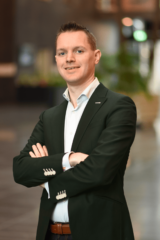You are invited to join the Nuremberg Research Seminar in Economics (NRSE) on Wednesday, October 16, 2024 from 1:15 pm to 2:45 pm. The seminar will be held at the FAU WiSo, Lange Gasse 20 in Room 0.423. The guest speaker, Prof. Dr. Hans Koster (University of Amsterdam), will be talking about “The Persistence of Urban Decline: Evidence from France’s Largest Coal Basin” (joint with G. Loumeau).
More information can be found here:
Urban decline and urban growth are not two sides of the same coin. When local positive shocks occur it typically leads to an expansion of the building stock, but when negative shocks hit, the existing building stock persists. We use the history of coal production in France’s largest mining basin as a source of exogenous variation in negative economic shocks. The geological delimitation of the basin and the placement of large-scale housing developments in close proximity to mines provide us with the opportunity to exploit very local spatial variation to identify the causal determinants of urban decline. We show that housing prices today drop by 11% when entering the mining basin. About 40% of this gap can be attributed to lower housing quality, with the remaining portion being ascribed to spillover effects. We proceed by setting up a dynamic spatial equilibrium model to disentangle the impact of spillovers and housing quality in determining the persistence of urban decline. Our model matches key moments in the data and predicts a protracted period of decline persisting for several decades before reaching a long-term equilibrium.
Hans Koster is Professor of Urban Economics and Real Estate at the Department of Spatial Economics, Vrije Universiteit Amsterdam. His research concerns the economic analysis of cities, regions and the environment. In an ever-changing urban world, there are several important questions that require answers. For example, how do we cope with the challenges of a steadily increasing urban population? How do people and firms compete for space? What are the costs and benefits of land use regulations? Should we invest public money in deprived neighbourhoods to reduce spatial disparities? These and other questions Hans is trying to answer using big data and advanced econometric techniques.
—
The Chair of Social Policy thanks the FAU WiSo alumni association, Alumni & Freunde WiSo Nürnberg e.V. for their support of this guest lecture as well as for their generous and on-going support of many other events and projects at the FAU WiSo. Visit the AFWN website for more information and to become a member.

